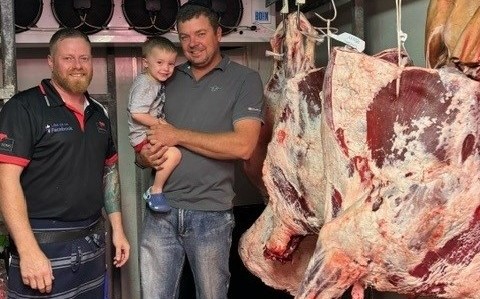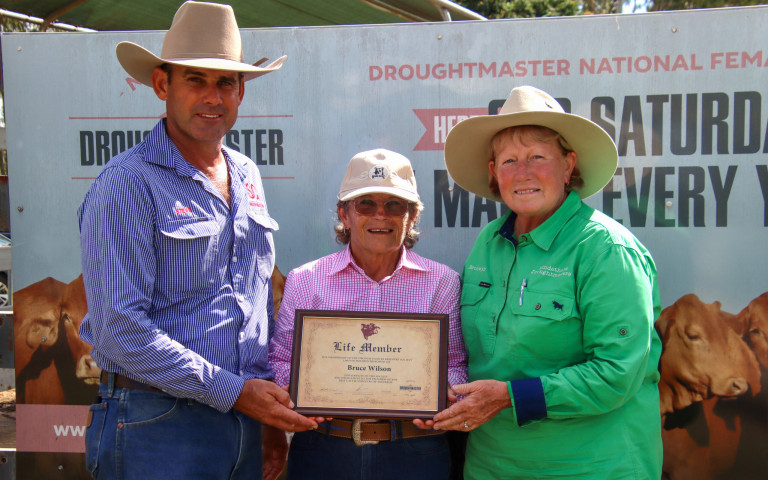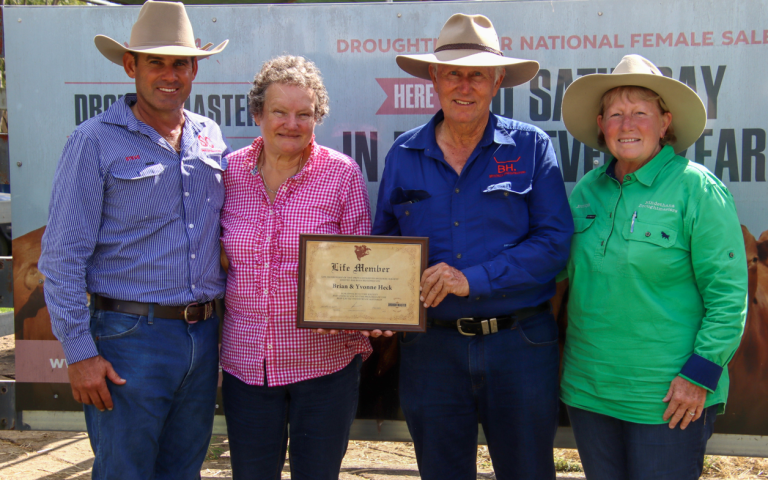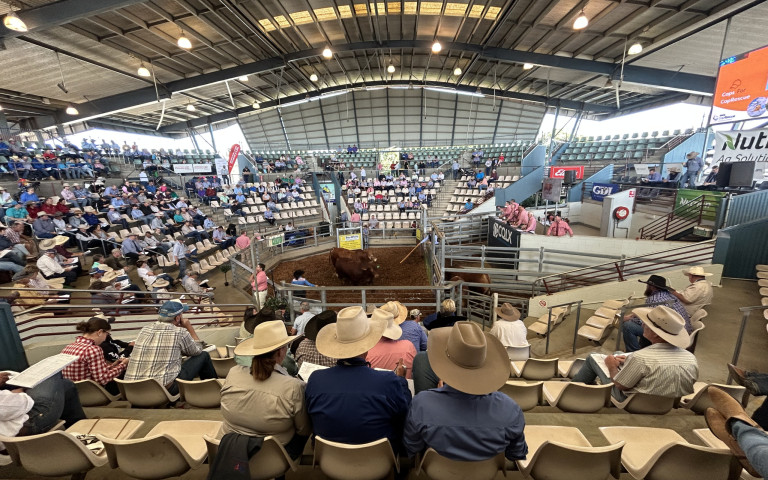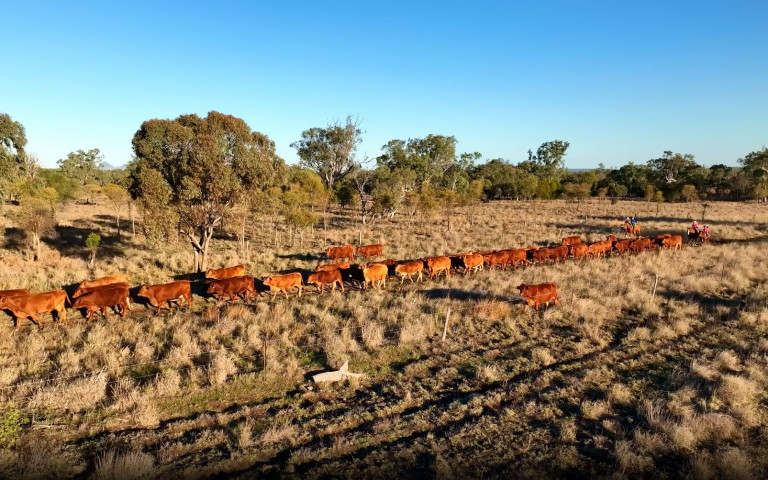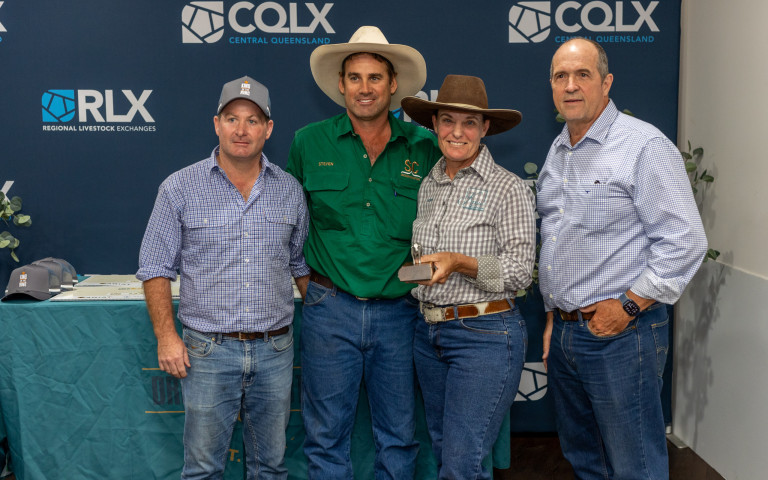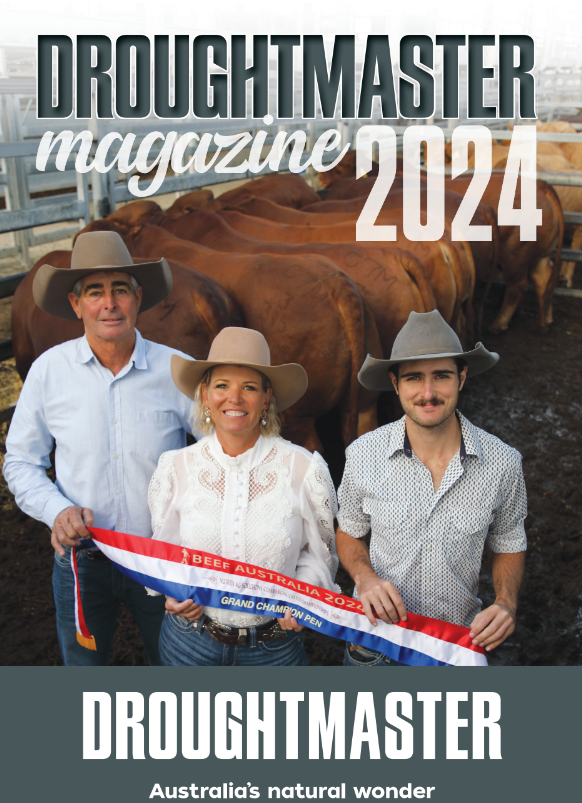A cut above: Droughtmaster beef gives Wingham butchers winning edge
27 Mar 2024
By BRAD COOPER
A country butcher shop on NSW’s mid north coast is growing its profile and winning over more discerning customers from across the region by including Droughtmaster infused beef in its regular offering.
The marketing masterstroke by Snow and Sons the Master Butchers at Wingham south of Port Macquarie is also a genuine local success story, with the beef raised on the nearby properties of Daniel and Alison Carey based on elite Droughtmaster bloodlines purchased from stud breeder Tim Lloyd, of Heitiki Droughtmaster stud, Delungra, near Inverell.
Snow and Sons co-proprietor Rodney Trenchard, who runs the business in partnership with his brother Mick, said the first offering of Droughtmaster beef from the Careys, which yielded overwhelmingly positive feedback from customers, was a taste of things to come.
“It was just spectacular beef,” Rodney said.
“As soon as the carcases arrived in our shop, we knew we had something special. Fat coverage was very even and at a 2.5-5 mm depth, so we didn’t lose much to waste; the conformation was excellent, and the meat colour was beautiful, so it looked very appealing in the display cabinet.”
For extra measure, Rodney also conducted his own quality assurance program.
“I did indeed take some home and put some on the barbecue,” he laughed.
“I can honestly say it’s as good as any beef from grass-fed cattle I’ve ever had.”
Family steak holders
When it comes to being a purveyor of fine meats, the pedigree of the Trenchard brothers is about as impressive as it gets.
Their father, affectionately known as Snow, established the business in 1980 before hanging up the apron and handing over to his sons in early 2020.
At different times over those 40 years, Snow had also purchased beef raised by the Careys, although in this case from Daniel’s parents Paul and Kerrie who maintained a consistent local supply from their predominantly Black Angus herd.
Now the families of this successful combination at opposite ends of the beef supply chain are teaming up again, although this time with beef that comes with a decidedly ‘tropical’ twist.
“We’ve eaten plenty of straight Angus beef in our time, but crossed with Droughtmaster, it just brings something extra to the table,” Alison Carey said.
“The softness and tenderness mean you can cut it with a butter knife, but there’s also a more robust, beefy flavour that makes the eating experience unique.”
Love at first bite
Daniel and Alison first fell in love with the Droughtmaster breed in 2016 when they visited Droughtmaster Australia’s exhibit at AgQuip, Gunnedah.
“It was love at first sight,” Alison said.
“They really are something to see, these big-framed cattle with their floppy ears and their quiet, docile temperaments and glossy red coats. They just looked so healthy and capable of withstanding anything that nature throws at them.”
Hardiness and resilience were two important traits the Careys were keen to incorporate in their soon-to-be-established stud and commercial beef cattle operation.
Rainfall was variable, paddocks were drying off and by the time their Menabilly Droughtmaster and Stockhorses stud was founded in 2019, the Australian east coast virtually exploded in the Black Summer bushfires.
Daniel is adamant, however, that Droughtmasters were in his sights despite nature’s fury.
“In our part of the world, cattle without that tropical bos Indicus content are more susceptible to pest and disease pressure like buffalo flies and ticks, and pink eye,” he said.
“We wanted a breed that would not just survive on our country, but thrive, and the Droughtmaster has proved more than worthy of that challenge.”
Bred for success
Located near Wingham on 40 hectares, with an additional 50 hectares of agistment country and two smaller 10-hectare farm blocks, the Careys’ Menabilly Droughtmaster stud started with one bull and two heifers from one of NSW’s longer established Droughtmaster studs, Heitiki, run by Tim Lloyd and family.
Tim, who runs the stud that his parents John and Margaret established in the early 1970s, said he was pleased to hear of the Careys’ success, but was not surprised by the response to the finished product.
“That’s what we breed for – early maturing, low bos Indicus content animals that are perfectly suited for southern Australian producers who are looking to crossbreed with their British or European herds,” Tim said.
“As is obvious from the response from customers of Snow and Sons, Droughtmaster genetics of this type are bringing resilience and survivability to herds as seasons get tougher, without compromising tenderness and flavour once they’re on the hook.
“In fact, if anything, they appear to be enhancing it.”
Since the initial purchase, five more stud heifers and another bull have been acquired from the Heitiki catalogue, producing six stud heifers and three bull calves inside 18 months.
Stud bulls are also put over Menabilly’s 30 Angus cows, with female progeny retained as first-cross breeder replacements and steers and cull heifers prepared for local processor Wingham Beef Exports.
While numbers are still modest, the emphasis remains on finetuning the feeding program using a blend from Drury’s Stockfeeds at Jones Island to ensure quality and consistency as volumes grow.
Four successive seasons of above average rainfall have appreciably elevated soil moisture profiles and boosted pasture growth across the Menabilly managed properties, giving calves and weaners the best possible start before they shift to a grain-based diet.
The positive seasonal shift will ensure more Droughtmaster beef for Snow and Sons’ customers in coming months.
With calves born around August-September after Christmas mating, 12-month-old steers at about 240 kg are taken off grass and silage and put onto grain for the last 100 days before sent to Wingham Beef Exports at 420 kg liveweight.
The carcases that came to Snow and Sons dressed at 180-200 kg with a high saleable meat yield that required no trimming and generated no waste.
Selling with sizzle
Renowned as a whole-animal butchery, where carcases are broken down using time-honoured knife skills, Snow and Sons had not bought a beast from a local producer in more than 13 years.
While the shop still receives pre-portioned cuts in cartons and vacuum skin packaging from processors, breaking down a whole body allows butchers like Rodney and Mick Trenchard to offer cuts not available through the mainstream supermarket channel.
“Outside traditional grilling cuts like t-bones, rumps and rib fillets, there are cuts you can get off a whole body that you can’t get from a carton like skirt steak, short ribs, tomahawk steak, and gourmet specialist secondary cuts,” Rodney said.
“We make a point of having those cuts in our display so that’s our point of difference.
“We’re directly across the road from a major supermarket chain so our approach is to supply cuts that have a bit of wow factor for customers who are seeking something unique or premium grade for special occasion meals.
“The Careys’ Menabilly Droughtmaster cuts ticked all these boxes.”
Daniel and Alison say the supply arrangement with Snow and Sons is invaluable marketing for the quality of Droughtmaster beef, but they also want to be known for producing high quality Droughtmaster genetics to provide to other stud and commercial producers to improve their herds.
With daughter Taylah, 20, one of their five children active in the operation, they believe they’re also playing their part in nurturing the next generation and have plans to promote their enterprise to a wider audience.
“With their quiet temperaments, Droughtmasters are perfect for kids to learn their cattle and parading skills. We use the odd beast to work our Stockhorses and practice camp drafting and come May we’ll be exhibiting at Wingham Beef Week,” Alison said.
“But the big dream, is to take one of our bulls and a heifer to the Ekka in Brisbane. That would be the ultimate for our stud, and such a thrill for the kids.”
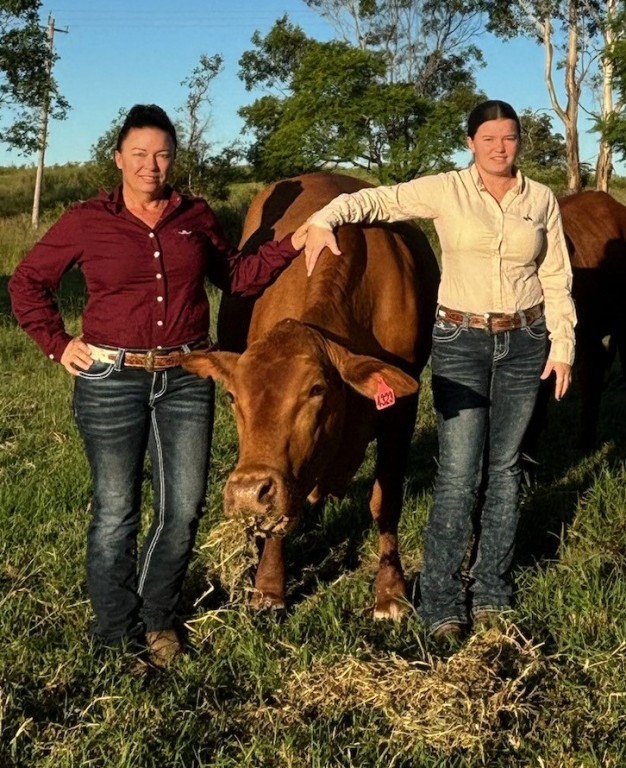
Alison Carey and daughter Taylah with stud Droughtmaster heifers
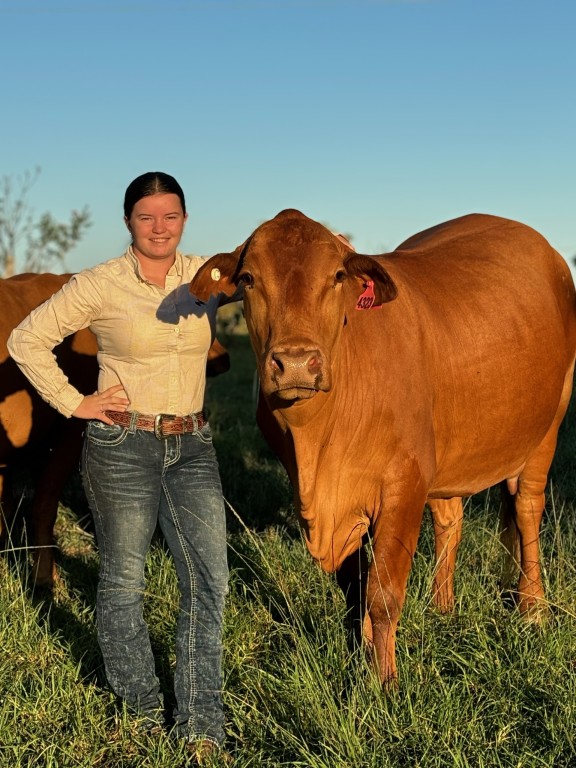
Taylah Carey is taking an active role in Menabilly’s stud operations, pictured with one of their prized heifers, Pippa, based on Heitiki bloodlines
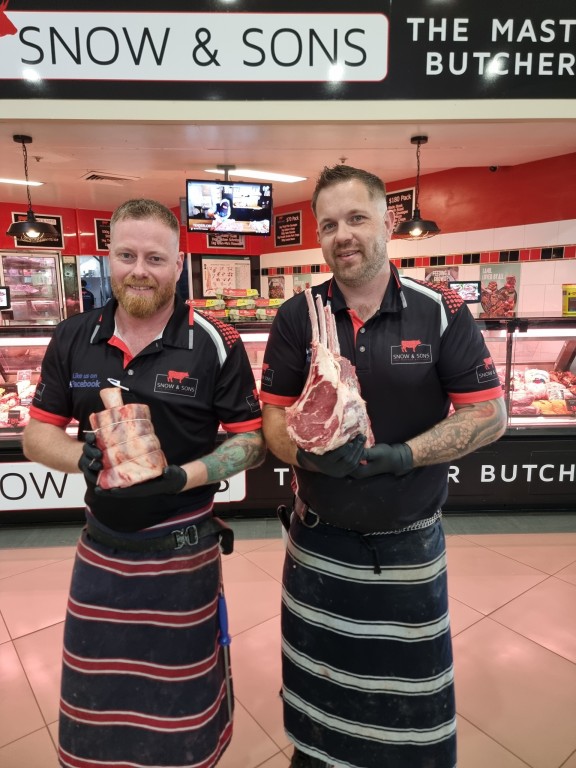
Brothers Rodney and Mick Trenchard market their butcher shop at Wingham as a supplier of premium meat, providing a good fit with locally produced Droughtmaster beef which will now form part of their regular offering to discerning customers across the region
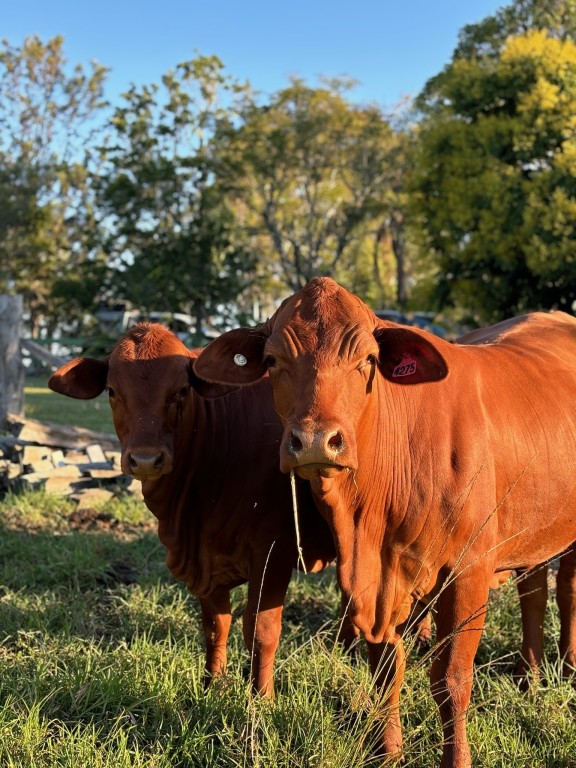
Quality females purchased from Heitiki stud, Delungra are providing the foundation of Menabilly Droughtmaster and Stockhorse stud established in 2019
